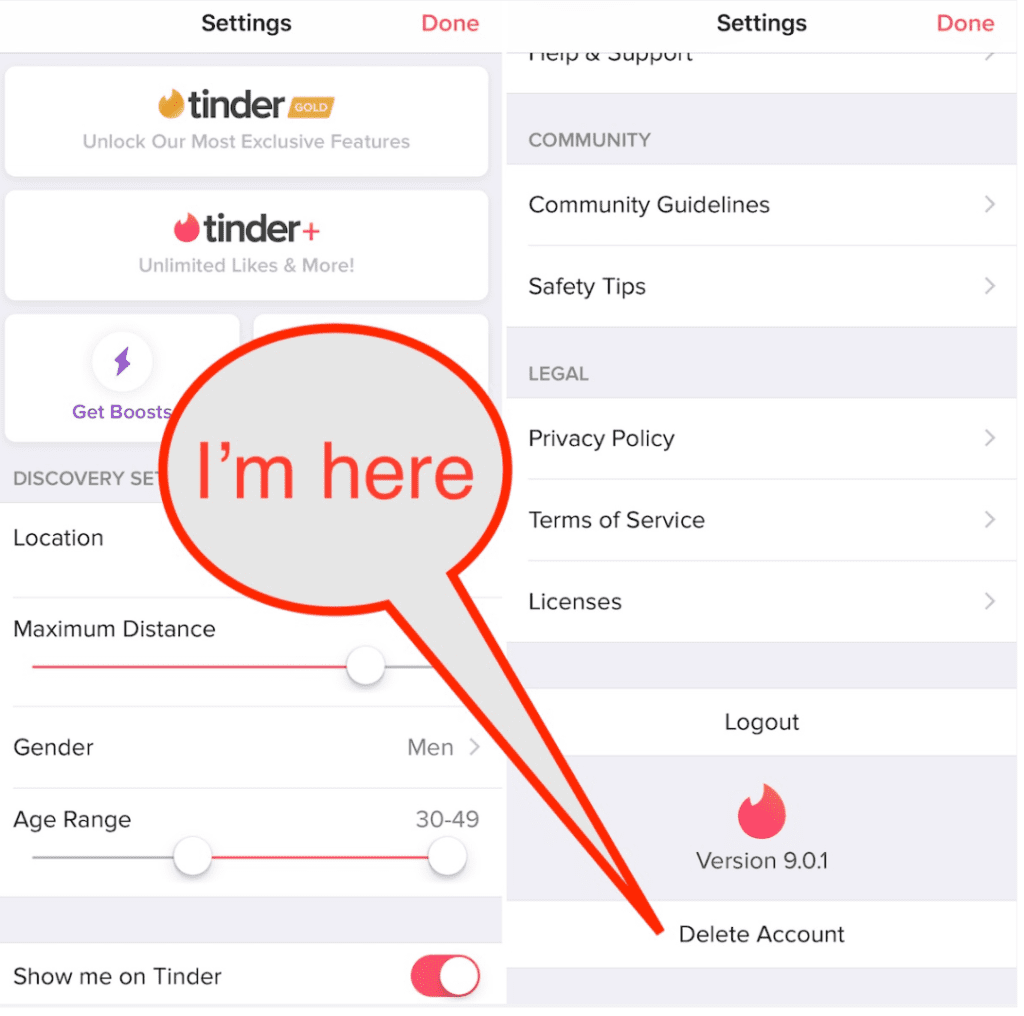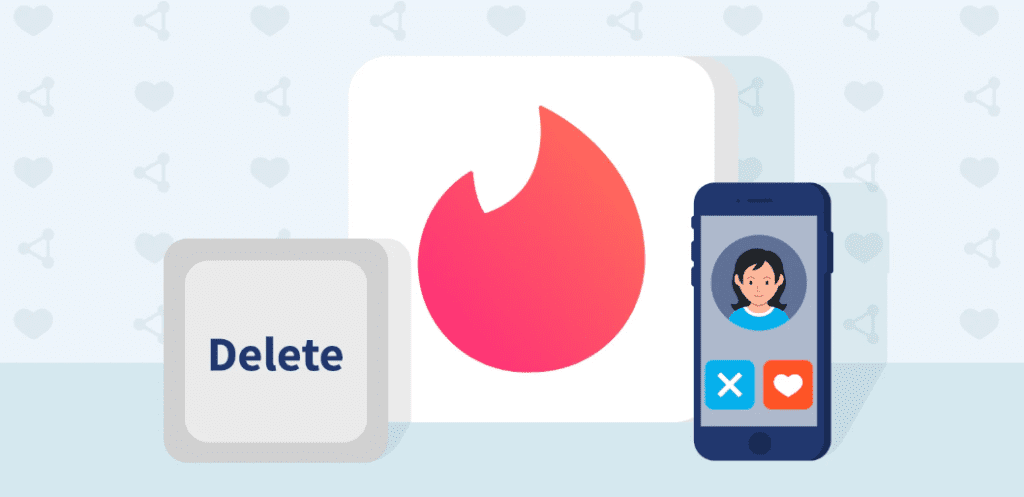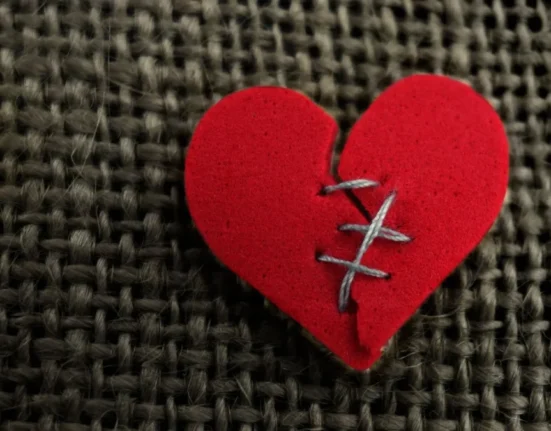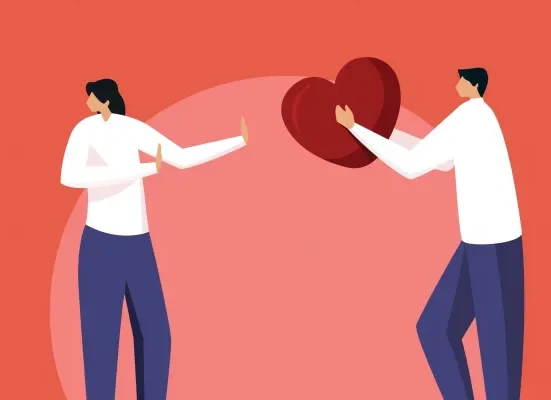Last Updated on May 30, 2024 by Rachel Hall
- Best Reasons to Delete Your Online Dating Profile After Meeting Someone Online on the Dating App
- Understanding Your Relationship Status
- Emotional Readiness
- Practical Considerations for Going Exclusive
- External Influences on Your Decision to Delete Your Dating Profile
- The Benefits and Drawbacks of Deleting Your Profile on the Online Dating Site
- Making the Decision to Go Exclusive
- Conclusion
Best Reasons to Delete Your Online Dating Profile After Meeting Someone Online on the Dating App
Understanding Your Relationship Status
Deciding when to delete your online dating profile, or the desire to delete dating apps, is a significant milestone in any relationship, signalling a shift towards commitment. Understanding your relationship status is the first crucial step. Are you in a monogamous relationship? Have you and your partner discussed commitment and mutual expectations?
Assessing these aspects is essential. Monogamy and mutual commitment are key indicators that it might be time to take down your profile. Additionally, understanding your relationship milestones—such as celebrating anniversaries or meeting each other’s families—can provide clarity.
Assessing Monogamy and Commitment
Deciding when to remove your profile is significant in any relationship. The first thing to consider is whether you are in a monogamous relationship. Look for signs such as spending most of your time together, introducing each other to close friends and family, and discussing plans. Mutual commitment is crucial. Both partners should feel equally invested in the relationship and agree on its exclusivity. If your partner keeps their options open, it might not be the right time to take down your profile.
Relationship Milestones
Common relationship milestones can help guide your decision. These include celebrating anniversaries, meeting each other’s families, and making plans together. Timing and expectations are also important. While some couples may feel ready to delete their profiles after a few weeks, others might need several months to reach the same level of comfort and commitment. It’s essential to move at a pace that feels right for both partners.

Emotional Readiness
Before you remove your profile, take time to evaluate your feelings. Understanding your motivations is key. Are you considering this step because you genuinely want to be exclusive, or are you feeling pressured by your partner or societal expectations? Emotional readiness for exclusivity involves being confident in your decision and feeling secure in your relationship. If you’re still harbouring doubts or insecurities, it might be wise to wait.
Having a conversation about intentions openly with someone you want to date is crucial. Ensure that both of you are on the same page regarding the future of your relationship. Ensuring mutual understanding can prevent misunderstandings and ensure that both partners are comfortable with the decision to delete their dating profiles. Open communication helps build trust with someone you’re dating and sets the foundation for a strong, exclusive, committed relationship with one person.
Practical Considerations for Going Exclusive
When deciding on taking down your dating profile, or deleting your dating apps, consider these practical factors:
- Length of Time Dating: Have you had enough amount of time to build trust and get to know each other?
- Relationship Milestones:
- Celebrating important dates
- Meeting each other’s friends and family
- Making plans together
- Daily Interactions: Are you consistently spending time together and enjoying each other’s company?
- Future Goals: Have you discussed long-term plans and reached a mutual agreement on how your relationship is progressing?
By evaluating these factors, you can confidently decide when to delete your profile and commit to your new relationship.

External Influences on Your Decision to Delete Your Dating Profile
External factors can significantly influence your decision. Social and cultural norms might pressure you into taking steps you’re not ready for. For instance, some might feel that after a certain number of dates, it’s time to become exclusive. However, every relationship is unique. Advice from experts can also provide valuable insights. Relationship counsellors often recommend waiting until both partners feel good, secure and confident about their commitment before initiating the deletion of their profiles.
The Benefits and Drawbacks of Deleting Your Profile on the Online Dating Site
When considering when to delete your profile, it’s important to weigh the benefits and drawbacks:
Benefits
- Deeper Connections: Fosters a stronger bond with your partner by focusing solely on each other.
- Reduced Distractions: Eliminates the temptation of meeting new people on dating apps.
- Increased Trust: Demonstrates commitment and builds trust in your relationship.
- Clarity and Commitment: Signals a clear intention to take the relationship seriously and work towards common goals.
Drawbacks
- Feeling Pressured: You might feel rushed into committing before you’re ready.
- Missing Variety: The excitement and variety of meeting new people on dating apps will be gone.
- Uncertainty: If you’re not completely sure about your partner, deleting your dating profile might lead to second-guessing.
- Potential Regret: If the relationship doesn’t work out, you might regret the decision to go offline.
By carefully considering these benefits and drawbacks, you can make an informed decision about when to delete your online dating profile.
Making the Decision to Go Exclusive
Deciding when to delete your online dating profile and go exclusive is a significant step. Start by reflecting on your relationship, considering your experiences together, your relationship milestones, and your emotional readiness. Personal introspection is crucial—think deeply about your feelings and motivations for wanting to be exclusive.
It’s essential to involve your partner in this decision. Discuss your thoughts and ensure there is mutual understanding and agreement. This joint decision-making process strengthens your commitment to each other.
Once you’ve reached a consensus, plan how to delete your profile and discuss future relationship goals together. By carefully considering these steps, you can confidently decide when to delete your online dating profile and commit to your relationship.
Reflecting on Your Relationship
Personal introspection is a crucial step. Think about your experiences together and whether you see a future with your partner. Are you both happy and fulfilled in the relationship? A joint decision-making process is also vital. Both partners should feel comfortable and agree on the decision to delete their profiles. This mutual agreement ensures that neither feel pressured or coerced into taking this step.
Taking the Next Steps
Once you’ve decided to delete your online dating profile, it’s time to take action. Here’s how to delete your profile: Log into your dating app or website, navigate to the settings or account section, and follow the instructions to delete or deactivate your account. Discussing and planning for future relationship goals with your partner is also helpful. Setting goals together can strengthen your bond and provide a clear direction for your relationship.
Conclusion
Deciding when to delete your online dating profile is a significant milestone. If you no longer want to date anyone else or see other people, it might be time for a mutual decision to go exclusive. If you truly believe in your relationship and don’t want to keep dating others, it’s important to ask the person you’re dating about their feelings.
Open communication is key. If one of you wants to wait, discuss the reasons. They might not want to date casually anymore but still feel cautious. Respect their perspective and ensure both of you are on the same page.
Ultimately, the decision to delete your profile should be a mutual decision based on trust and understanding. If neither of you wants to date anyone else, it’s a strong sign your relationship is moving in the right direction.

Rachel Hall, M.A., completed her education in English at the University of Pennsylvania and received her master’s degree in family therapy from Northern Washington University. She has been actively involved in the treatment of anxiety disorders, depression, OCD, and coping with life changes and traumatic events for both families and individual clients for over a decade. Her areas of expertise include narrative therapy, cognitive behavioral therapy, and therapy for traumatic cases. In addition, Rachel conducts workshops focusing on the psychology of positive thinking and coping skills for both parents and teens. She has also authored numerous articles on the topics of mental health, stress, family dynamics and parenting.








Leave feedback about this